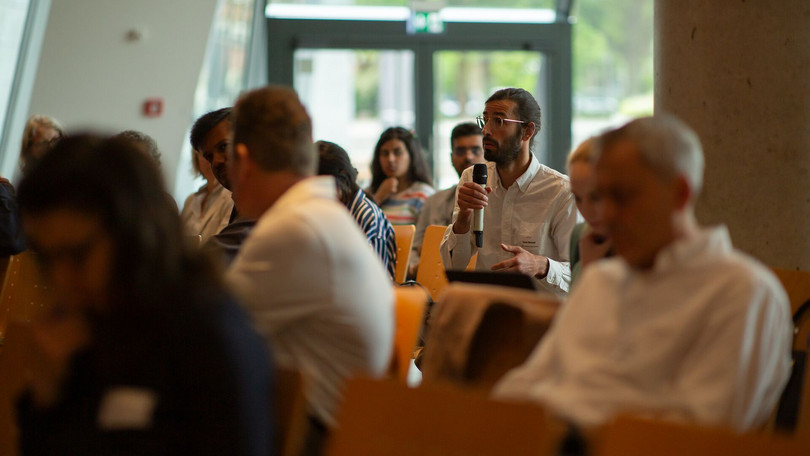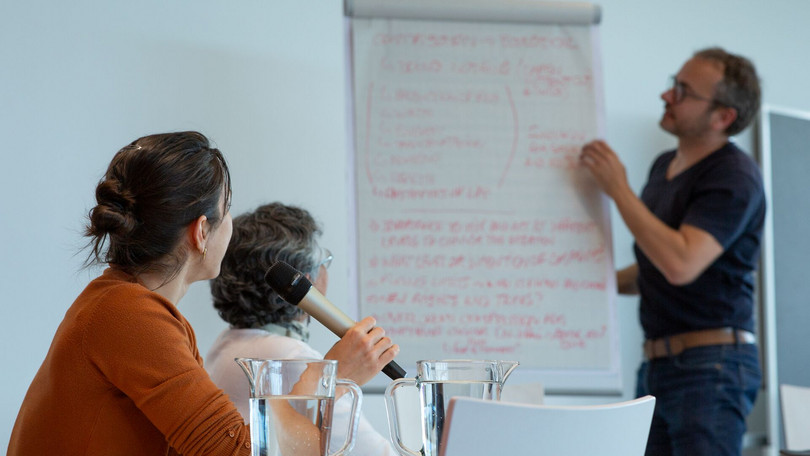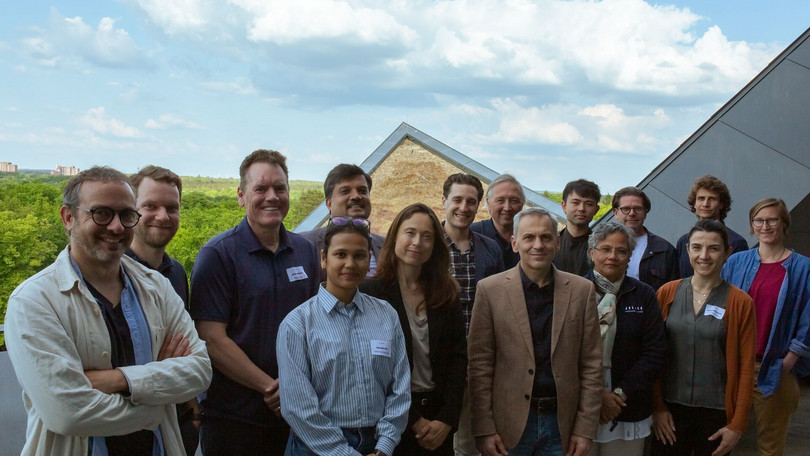Entrepreneurship in times of social crisis
2025-06-10 Entrepreneurship in times of social crisis: ‘Entrepreneurs of Chaos?’ Scientists from Europe, India and the USA gathered at Leuphana University Lüneburg on 19 and 20 May for an international conference under this title. They discussed the opportunities and challenges of entrepreneurship in times of social crisis.
How can entrepreneurship be rethought beyond the prevailing disruptive understanding of entrepreneurship? What potential arises when we question the formative effect of disruption? And how can innovation support social, ecological and cultural balance instead of destroying and destabilising it?
‘Many people talk about interdisciplinarity, but we really lived it at the symposium. It was extremely exciting,’ says Prof. Dr. Matthias Wenzel from the Leuphana Social Innovation Community, who co-organised the conference. Scientists from the fields of management and organisational research, cultural and media studies, and philosophy took part.
‘The complexity that emerges from different perspectives has taken our work a big step forward: disruption and entrepreneurship cannot be thought of in a single-track way. Entrepreneurship takes place in so many facets outside the mainstream and contributes decisively – both constructively and destructively – to economic and social development. It is now important that this insight is put into practice.’
This is happening, among other places, in the Leuphana Social Innovation Community. The researchers involved in the project have now discovered new facets that enable them to evaluate social innovations in a multidimensional way and shed new light on their relevance for society. Wenzel initiated the conference together with Igor Galligo as main organiser and Prof. Dr. Elke Schüßler and Prof. Dr. Erich Hörl.
The event took place as part of the research initiative ‘The Disruptive Condition.’ Prof. Dr. Markus Reihlen, Vice President of Entrepreneurship, Transfer and Internationalisation at Leuphana, and Prof. Dr. Steffen Farny enriched the conference with their contributions to the discussion. They are also members of the Leuphana Social Innovation Community.
A new understanding of entrepreneurship
In particular, participants questioned the disruption-driven discourse on entrepreneurship. Under the title ‘Entrepreneurship of Chaos? From Disruptive Innovation to Negentropic Entrepreneurship,’ participants mobilised the conceptual apparatus coined by French philosopher Bernard Stiegler for a possible reformulation of entrepreneurship. Among other things, Stiegler understood our present life in a globalised society (fragmented by class, race and gender) as a life in disruption and formulated the search for possible ways out as our task.
As a case study, the contributions focused on India and discussed, among other things, Bangalore, often referred to as the “Indian Silicon Valley”. As Neharika Vohra, Professor of Organisational Behaviour at the Indian Institute of Management in Ahmedabad, presented in a contribution, the term “Indian Silicon Valley” obscures more than it reveals. Without a shift in the technology industry in Bangalore towards equity in infrastructure, mental well-being, local innovation and autonomy, Bangalore runs the risk of becoming a neo-colonial output.
This intervention was taken up by Prof. Dr. Erich Hörl, Professor of Media Culture and Media Philosophy at the Faculty of Cultural Studies. Neharika Vohra's detailed description clearly illustrated the destructive influence of disruptive entrepreneurship on the culture and social life of a society: "As cultural scientists, we work on interpreting the present, driven by a strong conceptual effort. In doing so, concrete evidence often recedes into the background, even though we can only gain a true diagnosis of our times on the basis of a strong ethnography of the present. In this symposium, we have succeeded in gaining a deeper insight into the destructive effects of disruptive entrepreneurship, but also into possible counterstrategies, through many practical examples, not only from India,‘ commented Hörl. ’In particular, it has become clear how important local knowledge from the so-called Global South is for the search for alternative, i.e. counter-disruptive, models. Against this backdrop, it is worthwhile to further intensify interdisciplinary exchange across hemispheres."



